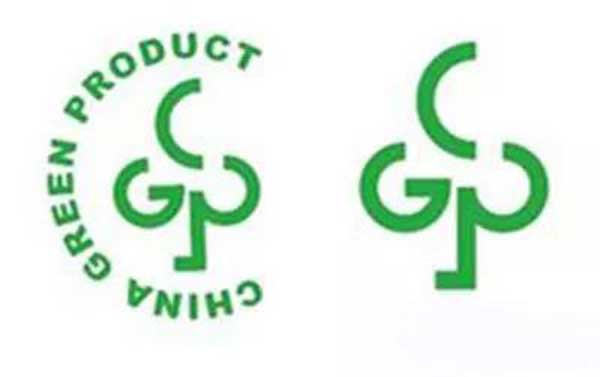Grew up in a humble industrial background, I have worked in sourcing and manufacturing for over 15 years and travelled extensively across China to visit factories either for my business or as representatives of our clients. My experience has taught me not all fashion manufacturing plants are exploited facilities run by devil people going above and beyond to screw their workers. Instead, a great majority of fashion manufacturers do carry out fair work practices, striving to produce high quality clothes with healthy, happy workers in a green environment and a more ethical clothes manufacturing way to grow their business.
The media has never lacked of negative news how the workers were badly treated in sweatshops in China or other third-world countries like Bangladesh, India, etc. It’s true there’re some exceptions. But with the constant monitoring of the local government, growing awareness of sustainable manufacturing, many fashion production plants have taken an ethical initiative contrary to the poor conditions and mistreatment the media has painted. Here I would share some of my experiences as to the common misconceptions held by the media or people who never set foot in China before.
- The conditions of Chinese factories are horrendous.
There’s no denying that in any industry there are good guys and a few bad apples. Not only in China but through out the world, there’re evil businesses trying all means to cut off costs for maximum profits. Poor lighting, ventilation, not providing protective equipments or taking safety measures for workers using toxic chemicals, poorly maintained machinery, irresponsible and uncaring management, etc. These do exist in China but thankfully, there’re many apparel manufacturers that do care about the sustainability of their facilities. During my 15 years of work for sourcing and manufacturing, I had the pleasure visiting some of the most well-run, modern facilities producing for Adidas, Ralph Lauren, Calvin Klein, Givenchy, Burberry, Lacoste and some Chinese brands, wow experiences that dispelled all the misconceptions I read from the media about Chinese factories. Let alone big manufacturers for iconic international brands, some small manufacturers I visited several years ago I still remember vividly as if we went there yesterday. For example, the factory sewing woolen pants for us in Guangzhou takes pride in their facility, the well maintenance of the facility, clean, modern building, top notch machinery to fair wage and allowance of their workers to the pants they produce with attention to detail. If you go to them with a budget of $7 manufacturing fee, you’ll definitely be turnt away, they would tell you they’re not sweatshops manufacturing cheap cracks and neither would they compromise for poorly manufacturing as it would ruin their reputation, on the contrary, they focus more on producing high quality pants in a more sustainable way.
- “Made in China” are junks.
“Made in China” tag is often times considered as notoriously poorly made. When a product breaks, people tend to blame it on made in China. However, the truth is there’s a spectacularly extensive range of Chinese made products falling into different quality grades. Some Chinese fashion manufacturers specialize in making inexpensive clothes while there’re factories focusing on higher grade, luxury apparel. The only thing is you just have to source an ethical manufacturer that understands your needs and follow your quality standards.
- Chinese workers are exploited badly.
It’s true that in garment manufacturing sector across the globe some workers tend to work as slave in the factories. However, we can not generalize the entire industry as all workers are deplored. As a matter of fact, now in China most clothes factory owners place great values on workers as it’s very hard recruit skilled ones since more young migrant workers are leaving production lines to find easier jobs with more freedom. Some garment factories in Luochongwei have been offering $1000 salary plus commission with free accommodation but still unable to find skilled workers. With the worsening of labor shortage, garment factories are creating all kinds of incentives to attract workers. Fair business practices with people oriented as core principle are adopted to ensure sustainability. The reputation of the garment manufacturer either attracts skilled workers or scares them away.
- Many companies outsource the production to China because of cheap labor.
As a matter of fact, manufacturing in China is not as cheap as it used to be a decade ago. As a result, some brands have moved part of their manufacturing to lower wages countries like Vietnam, India, Cambodia, Bangladesh, etc. Though these countries do have incentives in terms of lower labor costs, the major parts of manufacturing remain in China as China’s more advanced in infrastructure, ecosystem of the supply chain and experience in garment manufacturing. Lacking of ecosystem supply chain, quality control and communication barriers are hindrances that those younger, developing countries would take time to develop. Surprisingly, what keeps these fashion brands in China is actually the great pool of skilled workers available.
- Your intellectual property would be stolen.
When it comes to outsourcing fashion manufacturing to China, some people can get paranoid about their designs being copied by Chinese. These used to happen but in recent years facing with international public condemn Chinese government has carried out lots of regulations protecting trade marks and cracked down copy goods. Growing awareness of intellectual laws to gain trust of trading partners, most factories we work with always keep confidential as we agreed on the contract. Many brands have also taken different measures to protect their intellectual properties like signing contracts, but the most effective one would be fair practices, paying fair fees and producing in ethical fashion production facilities.


Leave a Reply